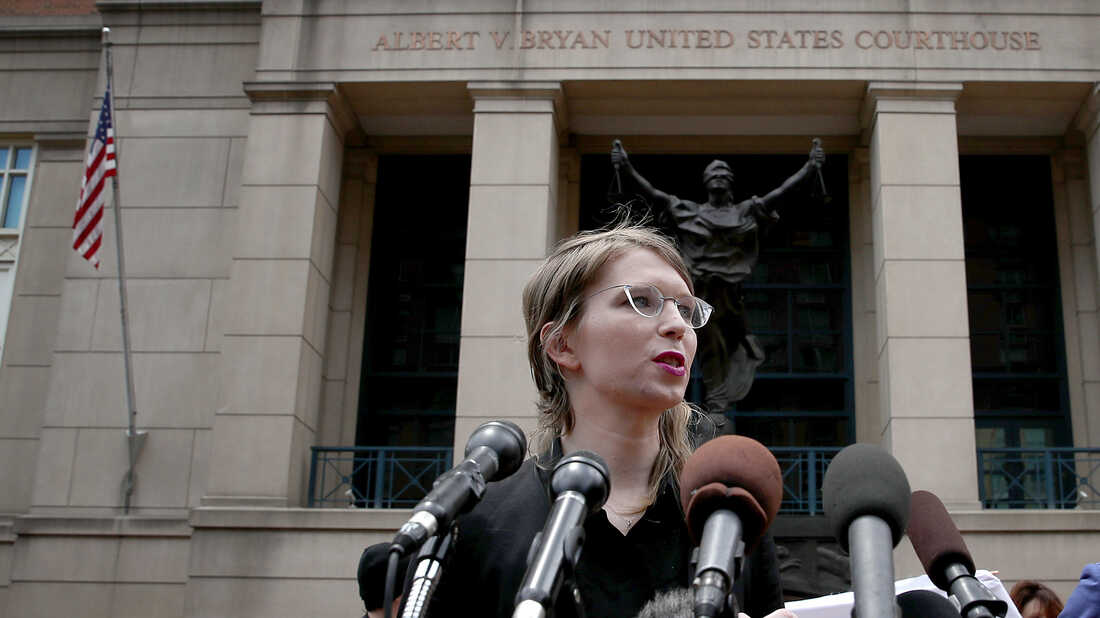anka
The Living Force
Chelsea Manning Attempted Suicide In Jail On Wednesday, Lawyers Say
Notwithstanding the horrors of what she must have been going through, I found that last bolded part most interesting. It seems to me that it has nothing to do with seeing things black & white only as they try to frame her personality. She might be unstable but I think it is more about seeing truth and lies, making clear distinction between them and acting accordingly. Anyway, this is one hell of a story. We just don't have a clue what people like Manning must endure In the same 'league' with J.Assange.
In the same 'league' with J.Assange.
Imprisoned activist and former Army intelligence analyst Chelsea Manning attempted suicide on Wednesday in the Alexandria, Virginia, jail where she’s been held for a year following her refusal to testify before a federal grand jury investigating WikiLeaks.
Manning’s legal team confirmed the incident in an statement to Gizmodo. She is currently in the hospital and is recovering, they said. Manning was scheduled to appear before a judge on Friday regarding a motion to terminate the sanctions she’s faced for refusing to testify.
Manning has been confined for the past year for refusing to testify about her past association with WikiLeaks founder Julian Assange. She has cited her contempt for the grand juries in statements explaining her defiance. In a letter to Judge Anthony Trenga last year, Manning said she objected to the grand jury “as an effort to frighten journalists and publishers who serve a crucial public good.”
“I have had these values since I was a child, and I’ve had years of confinement to reflect on them,” she said. “For much of that time, I depended for survival on my values, my decisions, and my conscience. I will not abandon them now.”
A judge ordered financial sanctions against Manning last summer in addition to her confinement. The fines she’s accrued now total more than a quarter-million dollars.
In a statement, Manning’s lawyers said:
In November, Nils Melzer, the United Nations special rapporteur on torture, labelled Manning’s reported treatment a “deprivation of liberty” and said the “open-ended, progressively severe” penalties she’s faced fulfil “all the constitutive elements of torture, or other cruel, inhuman or degrading treatment or punishment.”Ms. Manning is still scheduled to appear on Friday for a previously-calendared hearing, at which Judge Anthony Trenga will rule on a motion to terminate the civil contempt sanctions stemming from her May, 2019 refusal to give testimony before a grand jury investigating the publication of her 2010 disclosures.
In spite of those sanctions — which have so far included over a year of so-called “coercive” incarceration and nearly half a million dollars in threatened fines — she remains unwavering in her refusal to participate in a secret grand jury process that she sees as highly susceptible to abuse.
Ms. Manning has previously indicated that she will not betray her principles, even at risk of grave harm to herself.
The motion to lift the sanctions against her filed by Manning attorney Moira Meltzer-Cohen last month included a sealed report by psychologist Dr. Sara Boyd of the University of Virginia Forensic Clinic. In it, lawyers said, Boyd finds that Manning is “constitutionally incapable” of acting against her conscious.
The sealed report reads in part, according to the motion:
Manning attempted suicide twice in 2016 while she imprisoned for leaking archives of secret diplomatic cables and battlefield reports related to the U.S. wars in Afghanistan and Iraq. Her 35-year sentence was commuted by President Barack Obama in one his final acts of office.“Ms. Manning exhibits longstanding personality features that relate to her scrupulousness, her persistence and dedication, and her willingness to endure social disapproval as well as formal punishments. She also has a tendency to see issues in black and white terms with regard to ethical and values-based judgment. These personality features are not likely to be modified by any intervention.”
This a developing story. It will be updated.
Notwithstanding the horrors of what she must have been going through, I found that last bolded part most interesting. It seems to me that it has nothing to do with seeing things black & white only as they try to frame her personality. She might be unstable but I think it is more about seeing truth and lies, making clear distinction between them and acting accordingly. Anyway, this is one hell of a story. We just don't have a clue what people like Manning must endure
 In the same 'league' with J.Assange.
In the same 'league' with J.Assange.

